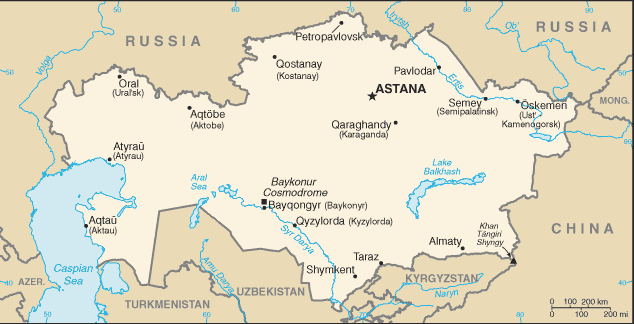CCEURO meeting in Astana
The FAO/WHO RCCs provide an incredibly important opportunity for dynamic discussion on major and emerging food safety and quality issues facing the region.
There are six Codex regions each represented by a joint FAO/WHO Regional Coordinating Committee (RCC).They meet every two years. Each committee is responsible for defining the problems and needs of the region concerning food standards and food control. By working collectively at the regional level countries are able to highlight regulatory issues and problems arising from food control in order to strengthen food control infrastructures.

The first Codex meeting in Central Asia - Kazahkstan: 3-7 October 2016
First time for Codex in Central Asia
In 1963, 18 European countries joined Codex in its founding year. Since then the number of countries that make up the CCEURO (European) region in Codex has risen to 51 with the membership of San Marino this year. Over the last 14 years, countries from Central Asia ranging from Kyrgyzstan in 2002, then Kazakhstan, Ukraine, Uzbekistan, Belarus, Serbia, Bosnia and Herzegovina, Montenegro, Tajikistan, Azerbaijan and Turkmenistan have all confirmed their membership of the Codex Alimentarius Commission.
"Most countries in the Central Asia subregion are in transition from planned to market economies, and in the process of reforming their institutions. In general, they have high potential for developing their agricultural sectors and achieving their food security objectives" (FAO).

The meeting in Astana is most important for the region.
Martijn Weijtens is the Chairperson of CCEURO and works in the Plant Agri Chains and Food Quality Department at the Ministry of Economic Affairs in The Netherlands: "The meeting in Astana is most important for the European region as it is the first time that Codex has organised a session in one of the countries of Central Asia. In that part of the region, there are several countries that joined Codex only very recently". Weijtens also commented on the programme of work for the Committee: "The agenda of the meeting is shaped following the new format of the 'revitalised regional committees', and that contains a large number of relevant subjects. We will focus a lot of attention on AMR, but also on the use of Codex standards in the region. So I am looking forward very much to the next week."
Standards
The regions can recommend to the Commission the development of global standards for products of interest to the region, including products considered by the Committee to have an international market potential in the future. Regions can also develops regional standards for food products moving exclusively or almost exclusively within a particular region.
Advisory Role
Regional committees can draw the attention of the Commission to any aspects of the Commission's work of particular significance to the region and promote coordination of all regional food standards work undertaken by international governmental and non-governmental organizations within the region.
Links
Follow the agenda for CCEURO here
Categories
- (11)
- (3)
- Animal Feed (8)
- Antimicrobial Resistance (39)
- Antimicrobial Resistance (78)
- CAC46 (15)
- Codex Texts (20)
- Codex Trust Fund (1)
- Codex60 (19)
- Contaminants (13)
- Contaminants (10)
- COVID-19 (64)
- Elections (6)
- Food Safety (126)
- Labelling (10)
- Nutrition and Labelling (5)
- Nutrition and Labelling (7)
- Observers (23)
- Pesticides (7)
- Standards (78)
- World Food Safety Day (154)


